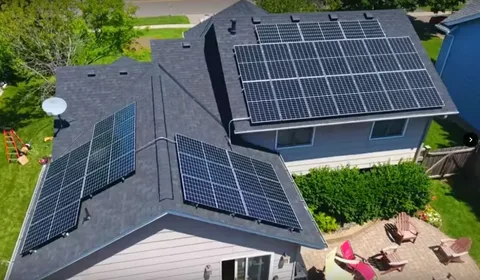In a world increasingly conscious of energy consumption and environmental impact, more people are turning to off-grid living: powering your home solar power system. This lifestyle offers independence from traditional utilities, reduces carbon footprints, and often leads to a more self-sufficient and sustainable way of life. If you’re considering the switch, here’s what you need to know about solar power and how it fuels the off-grid lifestyle.
What Is Off-Grid Living?
Off-grid living refers to a lifestyle where individuals or families operate independently of public utility services, particularly electricity and water. This means creating your own energy, often through renewable sources, and managing resources carefully. It’s not just a trend—it’s a commitment to living more sustainably and reducing reliance on external systems.
Why Solar Power Is the Go-To Choice
When it comes to off-grid living: powering your home with a solar power system, solar energy stands out as the most viable and efficient choice. Here’s why:
- Renewable and Sustainable: Solar power harnesses energy directly from the sun, an abundant and free resource.
- Low Operating Costs: After the initial installation, solar panels require minimal maintenance and provide free electricity for years.
- Environmentally Friendly: Solar energy doesn’t emit greenhouse gases, making it a clean and green choice for energy production.
Components of a Solar Power System for Off-Grid Homes
Setting up an effective off-grid solar power system requires several key components working in harmony:
1. Solar Panels
These panels capture sunlight and convert it into electricity. The number and size of the panels will depend on your energy needs and local sunlight availability.
2. Charge Controller
This device regulates the voltage and current coming from the solar panels to the batteries, preventing overcharging and prolonging battery life.
3. Battery Bank
Since solar power is only generated during the day, batteries are used to store excess energy for nighttime use or cloudy days.
4. Inverter
An inverter converts the stored DC power in the batteries into AC power, which is what most household appliances use.
Benefits of Going Off-Grid with Solar
The advantages of off-grid living: powering your home with a solar power system extend beyond just energy savings. Here are some key benefits:
- Energy Independence: Say goodbye to blackouts, utility bills, and price hikes.
- Environmental Impact: Lower your carbon footprint and contribute to a cleaner planet.
- Remote Living Possibilities: Solar systems enable people to live comfortably in remote or rural areas where grid access is limited or unavailable.
Challenges and Considerations
While appealing, off-grid living does come with challenges. Upfront costs for a quality solar system can be high. Additionally, proper system sizing is crucial—you must understand your daily energy consumption and seasonal changes to avoid power shortages.
Regular maintenance of batteries and solar components is also necessary to keep the system running efficiently. However, for many, the benefits far outweigh these challenges.
Final Thoughts
Off-grid living: powering your home with a solar power system is a rewarding journey toward energy independence, environmental responsibility, and personal freedom. With careful planning, investment, and the right mindset, solar power can offer a reliable and sustainable energy solution that supports a modern lifestyle—without depending on the grid.


